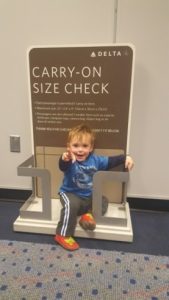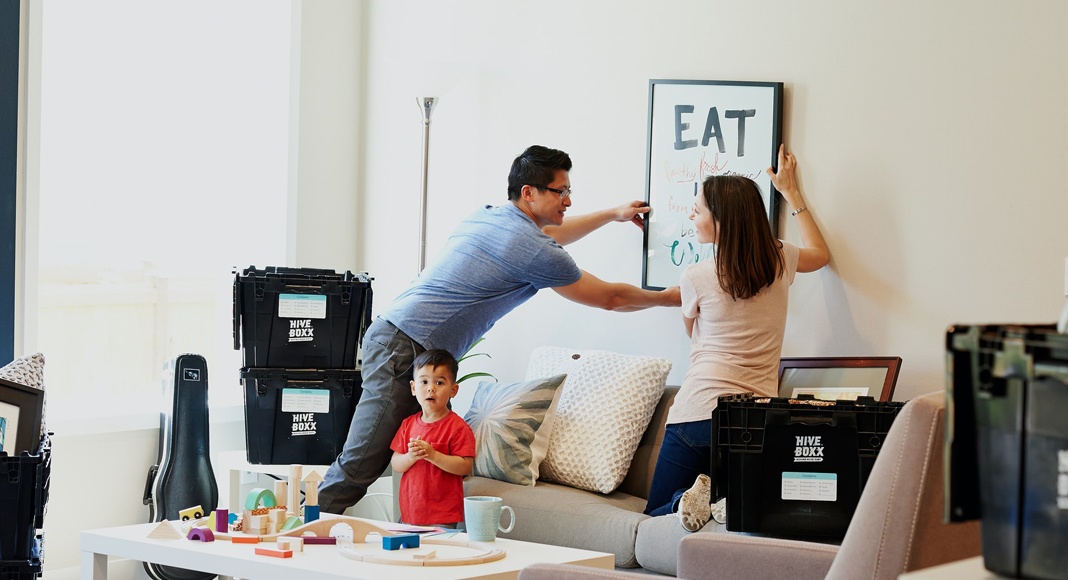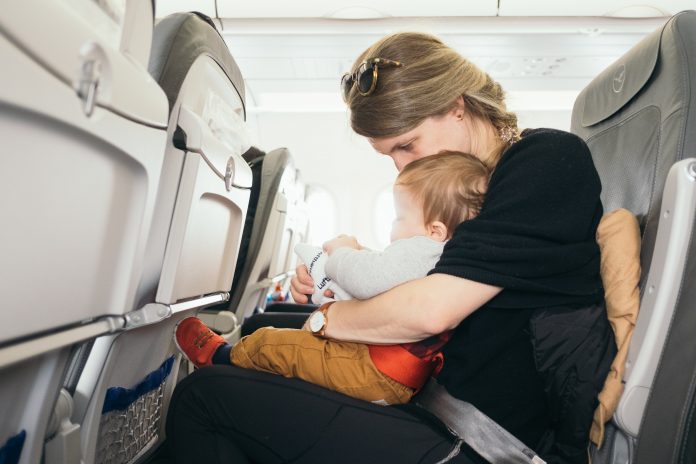 Our son was one year old the first time we traveled back to South Africa to visit family. After that trip, my husband and I agreed that we would only return to SA again when he was (at least) twelve years old. It was that traumatic. It is seven years later and we have since traveled back and forth several times. We have discovered many ways to make international travel a more enjoyable experience for all parties involved. However, I’m still not convinced that there is such a thing as stress-free air travel (or I suppose any travel) with kids. A travel blogger that I follow recently posted that “stress-free air travel with children is like a unicorn. Much desired and sought after, but ultimately a myth.” One advantage of air travel is that you can devote all your attention to your child or children – which may be a wonderful or frightening experience in itself!
Our son was one year old the first time we traveled back to South Africa to visit family. After that trip, my husband and I agreed that we would only return to SA again when he was (at least) twelve years old. It was that traumatic. It is seven years later and we have since traveled back and forth several times. We have discovered many ways to make international travel a more enjoyable experience for all parties involved. However, I’m still not convinced that there is such a thing as stress-free air travel (or I suppose any travel) with kids. A travel blogger that I follow recently posted that “stress-free air travel with children is like a unicorn. Much desired and sought after, but ultimately a myth.” One advantage of air travel is that you can devote all your attention to your child or children – which may be a wonderful or frightening experience in itself!
Over the years, we have come up with a list of essentials to make our trip easier. The list recently changed due to Covid-19 and the subsequent travel restrictions but still includes many of the handy flight hacks we have implemented throughout the years. The regular sharing of flying tips with a number of good friends who visit families locally and abroad has also been a lifesaver.
Our family’s list of air travel tips:
- Always remember that your trip does not start on the actual day of departure. It starts the moment you book those flights. Be wise when reserving seats as the wrong seats could cause you much frustration; it does not matter whether your flight is local or abroad. Pick a seat that allows easy and quick access to a bathroom and, if your budget allows for it, consider a flight with fewer connections.
- If you are traveling abroad, familiarize yourself with the entry requirements of that country in terms of required vaccinations, formal documentation, and so forth.
- Allow for enough time between connecting flights – which most of us have to do when flying from Idaho Falls.
- Federal regulations require that once a child has their second birthday they must have their own seat on an airplane to travel. However, when you travel abroad, consider buying younger kids and infants their own seats as well.
- The Federal Aviation Administration considers the safest place on an airplane to be in a government-approved child safety restraint system (CRS) or device such as a car seat or approved harness and not on the lap of a caregiver as “…Your arms aren’t capable of holding your child securely, especially during unexpected turbulence…” https://www.faa.gov/travelers/fly_children/. Ensure that your CRS system is approved for use on the airline you fly with. Strollers and car seats may be checked in before you board the plane.
- The TSA issued travel requirements with regard to kids with medical disabilities or mobility aids. We found it helpful that formula, breast milk, and juice are exempted from the 3.4 oz or 100-milliliter liquid rules (https://www.tsa.gov/travel/special-procedures/traveling-children).
- Allow your child to be part of the process by explaining the upcoming procedures beforehand and, if your nerves can tolerate it, even with packing some items. Consider a small backpack or roller suitcase which they can use for their stuff whether it is a book or stuffed animal; we have two very well-traveled stuffed toys.
- Take advantage of the early boarding and assistance offered by the airline you use. Some parents find this useful but it really depends on your child’s activity level. As our son got older, we found that it was better for him to move around for a couple more minutes rather than boarding earlier.
- We experienced that getting acquainted with passengers in our vicinity ensured that they were way more understanding when our son was having a meltdown somewhere during the course of the flight. An acquaintance got her toddler to give all neighboring passengers earplugs. If nothing, it definitely lightened the mood and she reported that the passengers complimented her on her daughter’s good behavior.
- Pack extra clothing in your carry-on luggage – a lot of it when you are traveling with an infant or toddler. On our son’s first flight abroad he had to be changed five times… The extra clothing and essentials also come in handy should your luggage get misplaced by the airline you are traveling with. Include extra clothing for adults as well – you never know what child-induced substance might end up in your lap on an 11-hour flight.
- Ensure ample snacks on board. Chances are good that your child will refuse the airline food. With Covid, snacks on local flights are limited to pretzels and cookies, and the convenience of ordering food on-board has been halted by the majority of airlines.
- Pack on-board entertainment such as a tablet or iPad, coloring books (don’t forget the crayons), sticker books, pop-up books, stuffed animals, playing cards, and so forth. Until he was around 3 years of age, our son was not interested in the onboard entertainment system at all and the aforementioned helped us to get through long flights.
- We recently discovered inflatable travel footrests such as PlanePal or Flyaway – these come in very handy when you travel abroad and your child needs to sleep for longer hours. The inflatable device fits into the foot space and basically serves as a seat extension. It allows your kid, depending on how tall they are, to lie down. Our son is 50 inches tall and he could curl himself up pretty comfortably. Ensure that your airline allows the use of these devices. It’s also worthwhile to investigate BedBox for smaller children.
- At 7 our son still complains about his ears popping during the flight, and it is even worse when your child has a cold or sinus infection. You can tell them to try yawning or chewing some gum to alleviate the discomfort in their ears. For younger kids, I found that drinking a bottle or sucking on a lollipop helped. Sucking minimizes the effect of the changing air pressure on kids’ ears during landing.
- Pack some medication just in case your child develops a fever or sore throat during the flight.
- Consider discussing the use of melatonin with your pediatrician to help with jet lag, especially when you are traveling to a different time zone.
- I’m sure that the majority of you are aware of the huge impact of Covid-19 on the travel industry. Before you book that flight, familiarize yourself with the requirements of the country you are traveling to. When traveling abroad. many airlines require negative Covid-19 tests and/or proof of vaccination. Some countries require additional health questionnaires and declarations and even the use of Covid apps during your stay in that country. Some might require proof of vaccination before you are allowed to dine at a restaurant. Further, ensure that you are familiar with the US Covid-19 requirements when returning from your time abroad. We recently traveled to South Africa due to a family emergency and we found the rapid tests that we ordered online and took with us very handy.
- Masks are compulsory at all airports and on all flights, local and abroad for all passengers older than 2 years of age. I strongly recommend practicing mask-wearing beforehand as in our experience the requirement is strictly enforced, even for kids.











